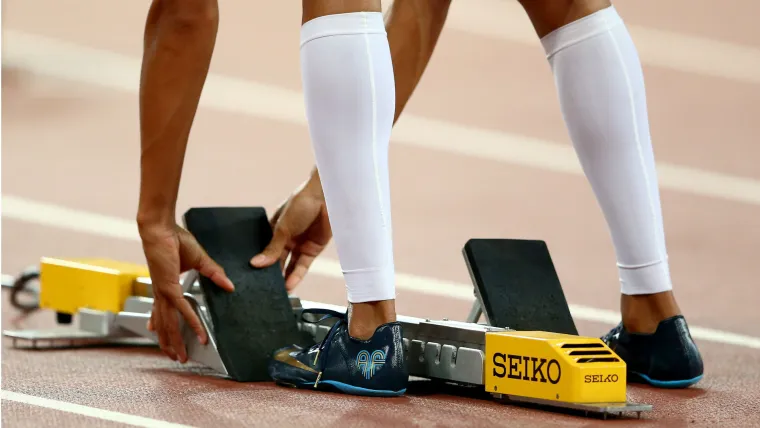The athletics events have produces some of the most famous events in Olympics history.
From Tommie Smith and John Carlos' salute in 1968, to Cathy Freeman winning gold in front of a home crowd in 2000, and Usain Bolt's world record run in 2008, some of the most defining images of the Games have come on the track.
Fans will be hoping to see similar scenes in Paris, as some of the world's top athletes fight it out for a gold medal in the biggest races of their lives, however some events will have a slightly different format this year, with the introduction of the repechage round.
The Sporting News explains what a repechage round is, and why it has been implemented at the Olympics.
MORE: Australian Olympic medal tracker | Every member of Australia's athletics team at Paris 2024
What is the repechage round and how does it work?
The repechage round is essentially an extra round that has been added in many events between the initial heats and the semifinals.
Whereas in previous years the qualifiers to the semifinals would include the top two or three in each heat plus 'lucky losers' who didn't finish in these places but still had fast times, the athletes who do not qualify by finishing in the automatic qualifying positions in round one heats will have a second chance to qualify for the semi-finals by participating in repechage heats.
The top athletes from the repechage will then qualify for the semifinals along with the athletes who finished in the top places in the initial heats.
This means instead of three rounds, the events with repechage rounds will have four, including the final.
Why has the repechage round been introduced?
There are a couple of reasons behind the introduction of the repechage round at the Paris Olympics.
Part of it is to increase the awareness and visibility of some events by giving them more airtime within a packed Olympics schedule, with World Athletics President Sebastian Coe saying, "the repechage rounds will give more exposure to our sport during the peak Olympic period and will be carefully scheduled to ensure that every event on our Olympic programme retains its share of the spotlight."
Another positive is that every athlete in the events with a repechage round will now be guaranteed to participate in at least two races at the Olympics, no matter where they finish in the heats.
What does repechage mean in French?
Repechage derives from the French word 'repêchage', which literally translates to 'fishing out again'.
Which athletics events have the repechage round at the Olympics?
There will be six individual track events in both the men's and women's categories that will feature a repechage round on the way to the finals.
Each running event with a distance between the 100m hurdles for women and 110m hurdles for men, and the 1500m race will have a repechage round added in to the schedule.
The 100m and events with a distance over 1500m will not feature repechage round; the official Olympics website states this is because the 100m already has a preliminary round before the heats, nullifying the need for a repechage round, and because long distance athletes need a longer time to recover, and a repechage round would therefore be impractical.
Men's athletics events with repechage round
- 110m hurdles
- 200m
- 400m
- 800m
- 1500m
Women's athletics events with repechage round
- 100m hurdles
- 200m
- 400m
- 800m
- 1500m
The new kayak cross event also has a repechage round.

